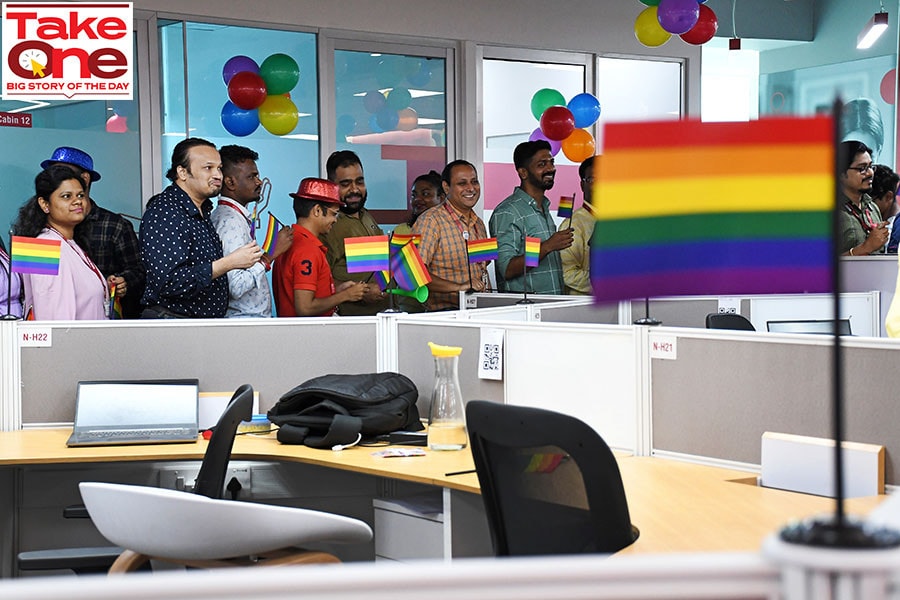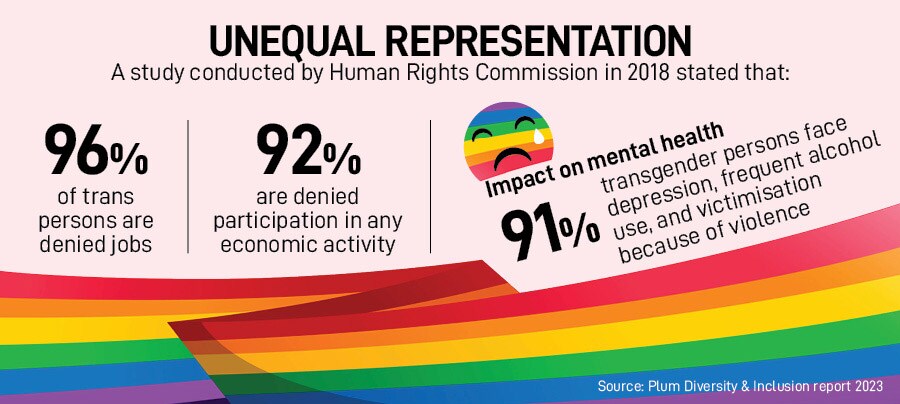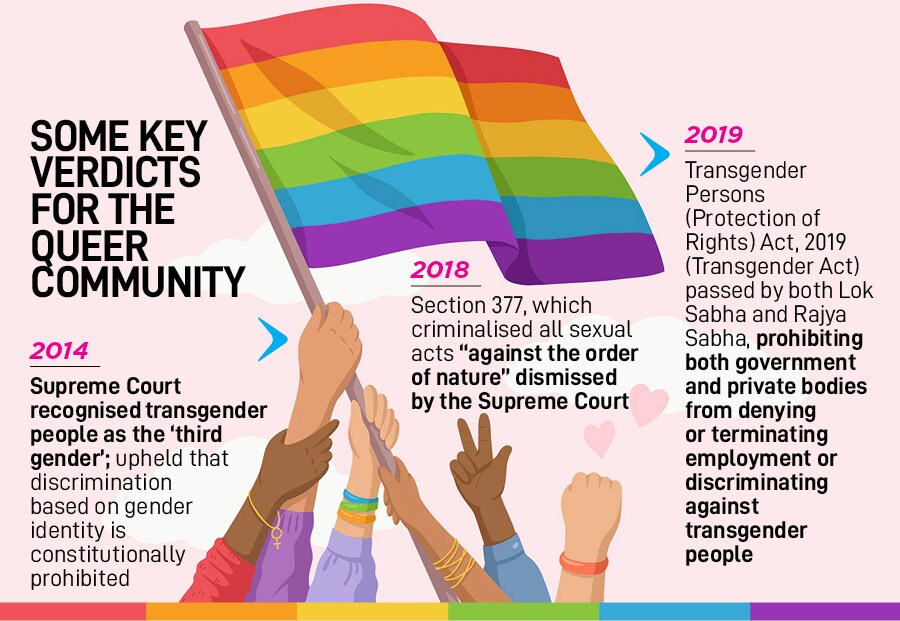
Pride Month: Are Indian workplaces queer-friendly enough?
While companies are trying to adopt newer ways to implement diversity and inclusion at workplaces, employees are not fully satisfied
 A file photo of Future Generali India Insurance staffers participating in a rainbow flag flash mob at their office, Mumbai, Maharashtra, June 17, 2022. Image: Ashish Vaishnav/SOPA/LightRocket via Getty Images
A file photo of Future Generali India Insurance staffers participating in a rainbow flag flash mob at their office, Mumbai, Maharashtra, June 17, 2022. Image: Ashish Vaishnav/SOPA/LightRocket via Getty Images
Jaspal Singh, 27, who works with one of the top audit houses in India, is worried that he and his fellow queer employees won’t be received as “normal” if they came out at their office. He says the policies for LGBTQ+ employees at the workplace are not part of the onboarding process, and are hence unclear. “There are a few rudimentary procedures such as employees being able to raise concerns to the internal committees. We are concerned, however, that we will not be received as perfectly capable if we wore our pride on our sleeves. So we conceal our sexual orientation and pass off as straight to avoid any conflict,” says Singh.
In India, and also the world over, many organisations are trying hard to sell themselves as an inclusive workplace with gender-neutral policies, awareness sessions, insurance and medical policies for the queer people etc. But, at a team or an individual level, the reality is at odds.
Fatima Khan (name changed), working as an HR consultant in the Diversity & Inclusions team at a multinational conglomerate, feels controlling the everyday work environment to ensure zero discrimination is an issue. “If we hire someone from the queer community, it is difficult to ensure they won’t face subtle or passive forms of discrimination. We are trying to take this up with inclusivity sessions and awareness workshops and I think more than policies, we need more of implementation and execution,” says Khan, who identifies as pansexual.
Indeed, walking the talk is difficult for organisations. Khan mentions that, as a part of the diversity and inclusion team, the current representation of women and specially-abled employees at their workplace is itself a work-in-progress and hence branching out to the queer community has taken a backseat.
Aparna Mittal, an equality, diversity and inclusion advisor, and a corporate lawyer with over 19 years of experience explains the reason behind this gap. Most companies have not fully understood the importance of inclusive hiring and retaining a diverse demography at the organisation, she says. The understanding of why diversity, equity and inclusion (DEI) at workplaces is important and the multiple diversities / facets of DEI, is still quite primitive. “The first challenge is for people to understand that DEI is relevant, it needs to be done, and then how it should be done, only then we can come to implementation,” says Mittal.













